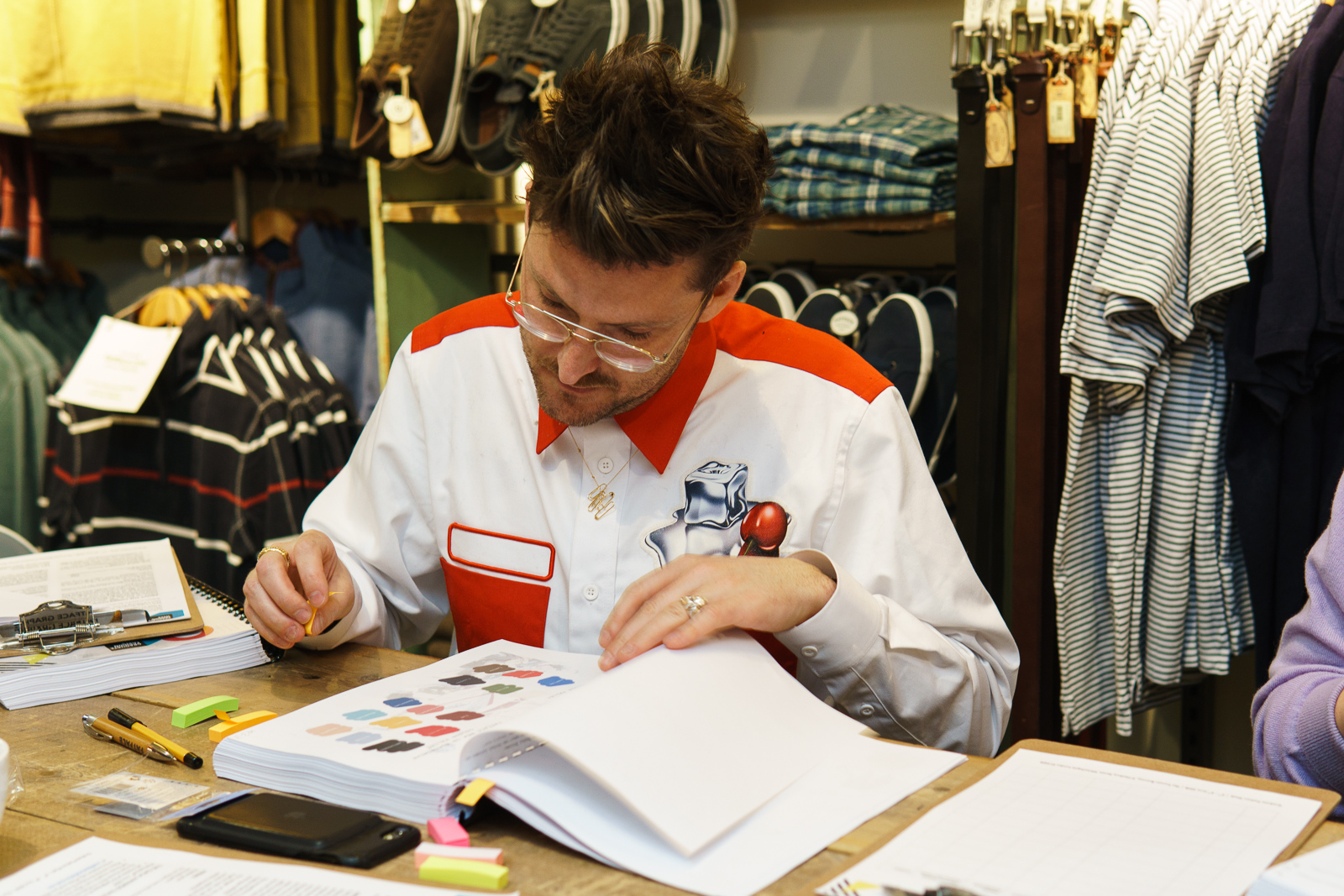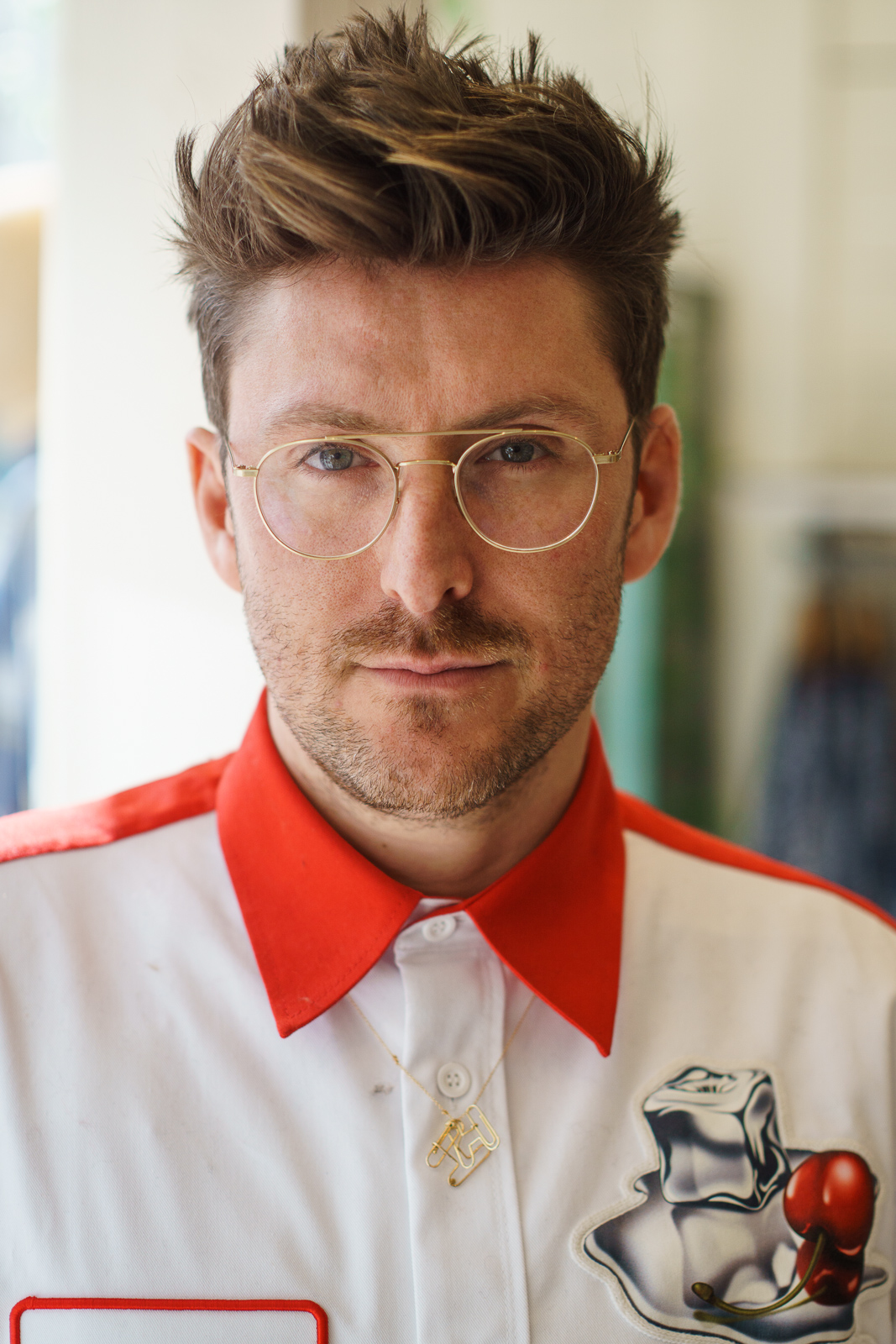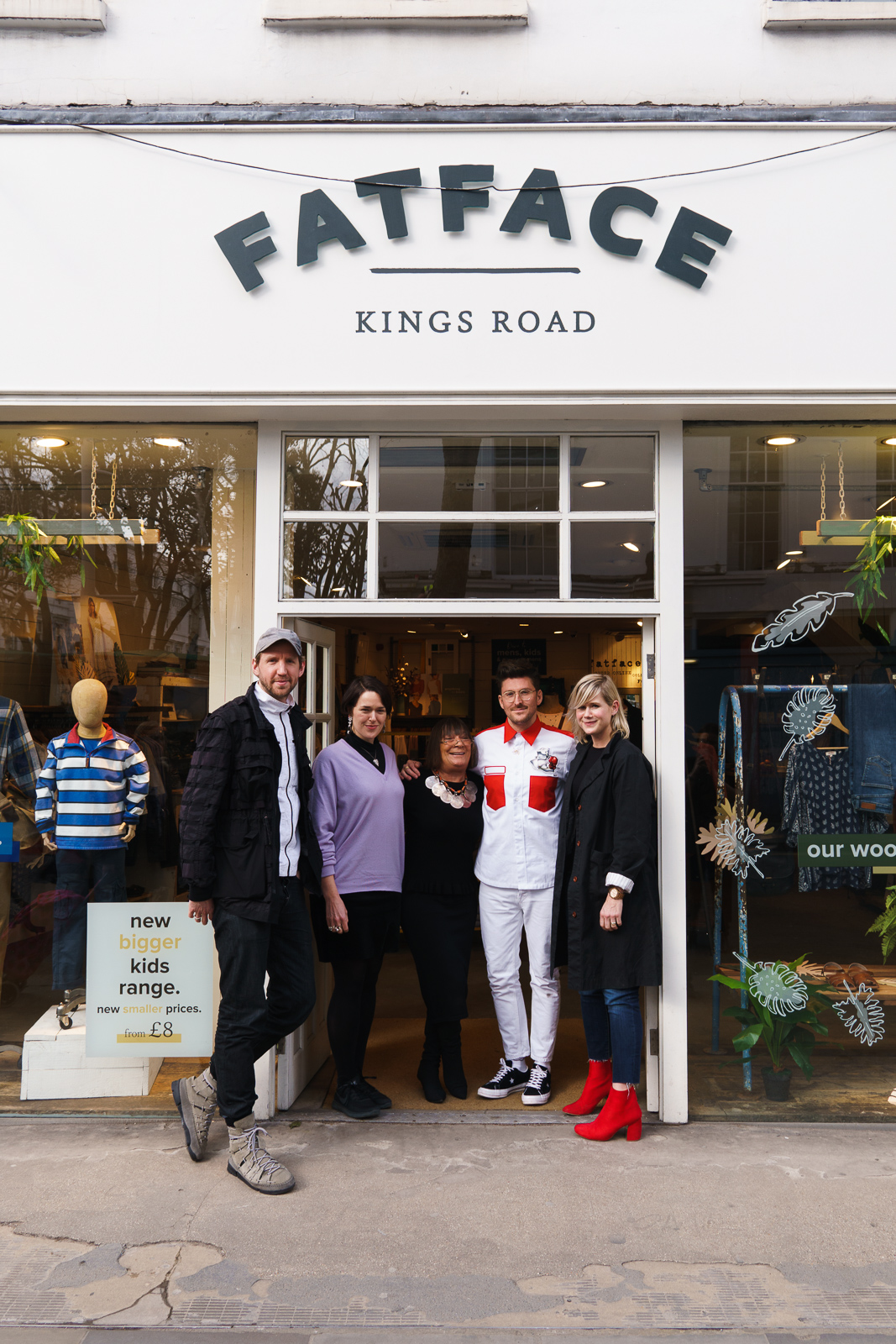Playful designer and GFW Global Ambassador Henry Holland, is known for his ironic take pop culture with slogans such as 'Get Your Freak On, Giles Deacon' and 'Cause Me Pain, Heidi Slimane'.
FatFace, the iconic, worldwide surfer brand is a new sponsor for GFW18, and to launch the partnership, we created the 'FatFace Graphic T-Shirt Competition'. Alongside Holly Fulton, Hilary Alexander and Christopher Ræburn, Henry recently judged the entries to choose a winner- who's designs will be sold in FatFace stores!
We caught up with Henry at the judging, to find out what informed his choice, why he supports emerging graduate talent and why he's concerned that fashion needs to be aware that political movements aren't trends...
Firstly, what made you want to be involved in GFW?
I have been supporting GFW for many years, I think the initiative is incredible. I think it is an amazing opportunity for students, it is such a key industry to get involved in. I think my route into the industry was far from classic- I didn’t even study fashion. There’s a part of me that feels incredible grateful and lucky that I am able to work in this industry. So I am more than happy to help anyone else along the way!
What did you study?
Journalism. I was working in magazines when I started making T-shirts. I was working for smash hits, so yeah I am just grateful to be in the position that I am in and so I like to be able to help out if I can.
The industry is going through a dramatic change with a focus on sustainability and political movements such a feminism. How do you like to implement movements like this within your work?
I think it is really important that we have a social responsibility to what we are doing and it is something that we are starting to implement in our work and processes. I think that it is kind of strange to me that it is even a movement, rather than just something that we have always been thinking about. I think whilst it is really great to be able to use your work to highlight certain issues that you feel passionate about, and in terms of like feminism and things like that, my fear around it is that, fashion is so typical and trend lead.
That if we get too attached to certain causes as an industry, we are in danger of turning them into trends and I think some of them are important political issues that need to be at the forefront of peoples minds all the time and not ever have a feeling that they’re last season. I think we touch on it, and its more about supporting certain causes maybe, than just using it as a way of driving sales because something feels like a trend focused thing.
As a judge for the FatFace Graphic T-Shirt Competition, you saw many entries. What were you looking for?
So coming from a T-shirt background, I started working for my company on just T-shirts. I was looking for something that stood out, and cut through the noise and grabbed my attention. And the best way to grab my attention is to make me laugh! There is so much different criteria when looking at something like this, so it is a real toss up when looking at the entires, finding something that fits with the brand, that feels like I would wear - that I would put on one of my designs. It is about finding that balance of what is right for the FatFace customer but also something that goes with me and my sensibilities.
Lastly, what advice would you give to students that are preparing to show at Graduate Fashion Week this year?
First of all I wish them luck! Then I would say just enjoy the process. The most important thing in this industry is to identify what your point of view is and what you are going to use your voice to say.
It is such an objective industry, it is an art form. Some will love what you do and some will hate what you do. Therefore It is important to develop a true sense of self and remain authentic to that throughout your entire approach. And I think that is one thing that can never be taken away from you.
Interview by Annabel Waterhouse-Biggins





